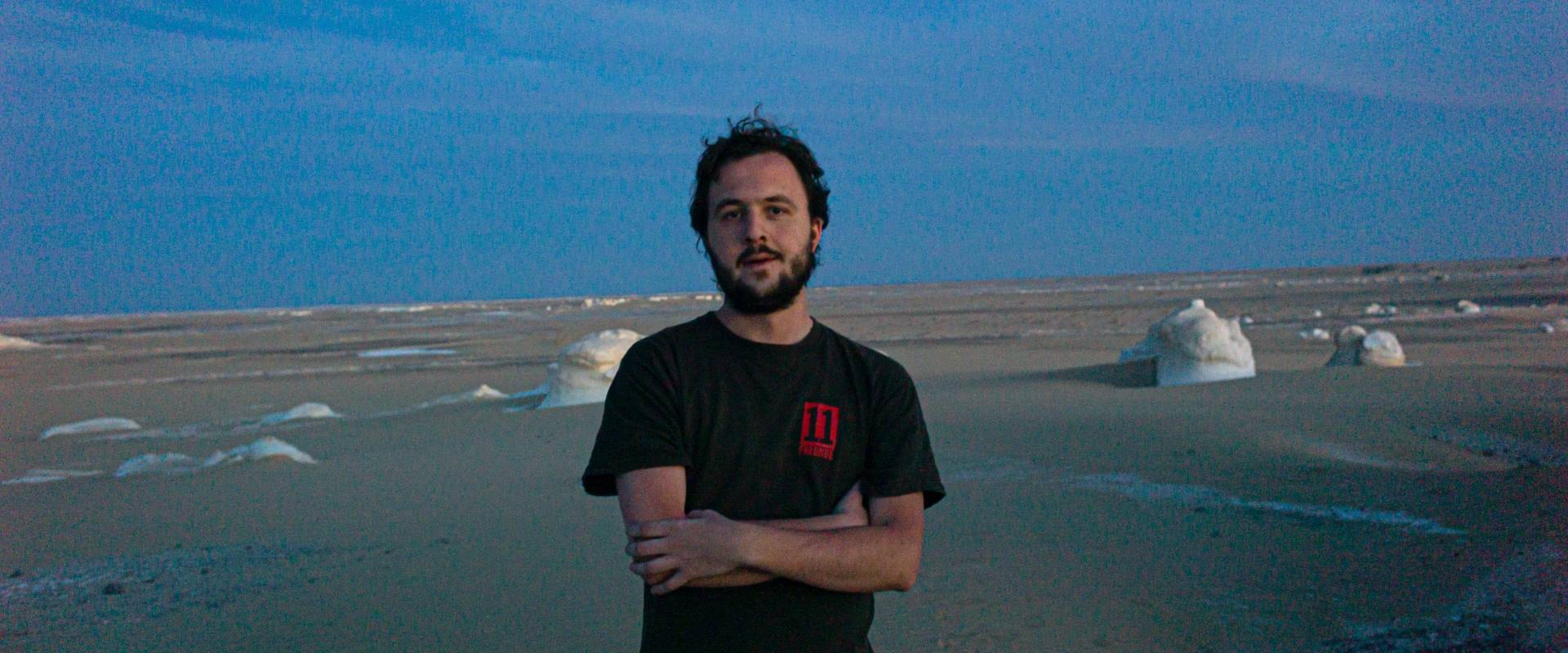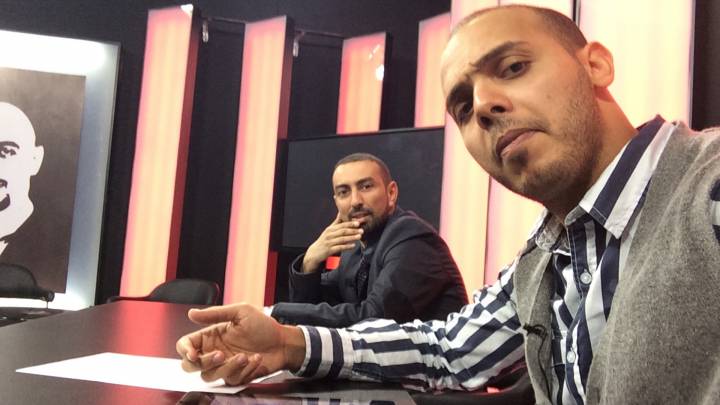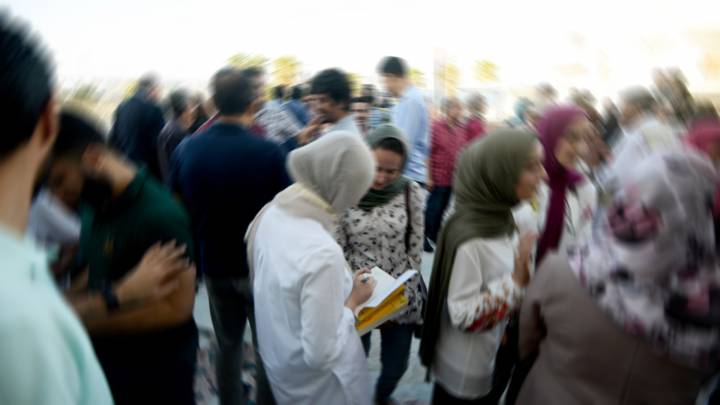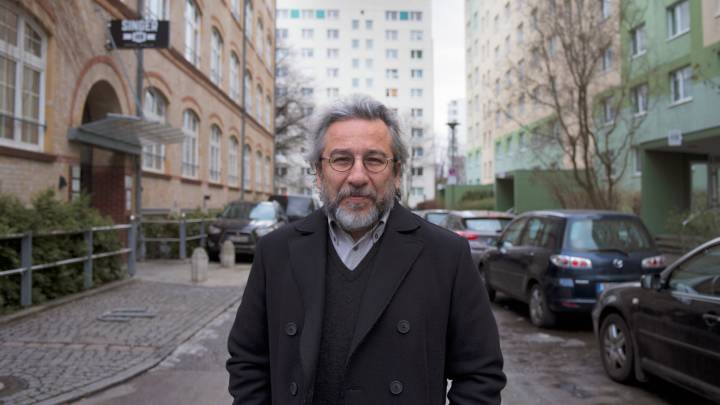A keen-eyed observer of the Middle East who asked the right questions and found answers to many of them. A sportsman you could rely on. But above all, our dear friend and colleague. We mourn Christoph Sydow.
There are people you never worry about. They seem mostly composed, relaxed and at peace with themselves. Drama and tantrums are as uncharacteristic of them as storms of enthusiasm. You hold them dear, rely on them and expect them to be forever unchanged.
Christoph Sydow was born in the Berlin borough of Lichtenberg in 1985 to an East German educated urban family. His father Torsten had become a South Asia expert and journalist, while his mother Karin studied education. Christoph and his younger brother, Jonas, grew up in a fairly academic family. Their childhood was filled with foreign languages and, despite the restrictions on travel in the communist German Democratic Republic, a deep interest in world affairs. Christoph attended the Johann Herder Gymnasium, which imbued its students with the values of a somewhat classical education allowing them to remain unfazed by the changes which had followed the fall of the Berlin Wall in 1989.
By the time Christoph was twelve his classmates had already figured his future profession. “He came in every week with a copy of the news magazine Der Spiegel under his arm. He was the only one who would read every issue from cover to cover,” recall his school friends around Philipp Spalek, a photojournalist who worked in Egypt for several years. Spalek fondly remembers the young Christoph as something of a walking encyclopaedia. They spent countless maths classes trying to name as many cities, countries, or US states as possible. Due to his famed “infallible memory” Christoph was a much in demand teammate when the regular pub quiz came around. Even questions like “Which advertisement was printed on the display that Jürgen Klinsmann kicked into during a 1997 Bundesliga match?” In fact, Christoph even corrected the quizmaster on it.
Beyond history and world politics, Christoph’s real passion was sport. His fondness for cricket perhaps bewildered his fellow East Germans, but it did represent the ideal blend of global history, strategy and sport. Christoph co-founded a football team in Friedrichshain in the east of Berlin. But it will probably forever remain a mystery why he, a born-and-bred Berliner, cheered week in week out for the green and white of SV Werder Bremen, some 400km from the city of his birth. As goalkeeper in his local team, Christoph calmly marshalled the defence from behind rather than rushing forward. It was, however, on the hockey field that Christoph met Juliane. A few years later they married on a wonderful New Year’s Eve. And not long after they first had a daughter and then a son together.
Christoph was not only interested in the great men of Middle Eastern politics, but also in the social dimensions of events unfolding in the region.
Prior to 11 September 2001, most Germans who studied Islam or the Middle East found themselves doing so by accident. Maybe they had missed the requirements to get on another course, they wanted to learn an out of the ordinary language, they were reconciling themselves with their own family connection with the region, or were simply unhappily in love.
Terrorism, Islamophobia, the Israel-Palestine conflict and the bloody second intifada after the failed Oslo peace process were all in the forefront of Christoph’s mind as he began his studies at the Free University of Berlin in the leafy neighbourhood of Dahlem in the city’s southwest. Here he attended lectures, alongside another school friend Robert Chatterjee, ranging from the history of the Abbasid Empire to the philosophy of Sufism.
Events in the Middle East continued apace. Christoph took an enthusiastic interest in Lebanon. The lure of this small Mediterranean country’s many faiths, languages and seemingly boundless energy has drawn many young students of the region to its shores. Christoph and Robert, therefore, scheduled a long-planned research trip to Lebanon for March 2005.
They were caught up in an event that was to leave an indelible mark on the history of the region. On an unassuming Monday morning in February 2005, roughly 2.5-tons of explosives were detonated on the Beirut seafront as the cavalcade of Lebanon’s prime minister went by, killing Rafiq al-Hariri and 22 others. Hezbollah and the Assad regime in Damascus were suspected. And eventually, the Syrian occupation force bounded to international pressure and large-scale protests within Lebanon.
Back then, Christoph was rather critical of the German media’s coverage of the Middle East and North Africa. Too little nuance, not proficient and differentiated enough. Above all, he wanted to apply the knowledge he had acquired. In 2005, Christoph, Robert, and Christoph Dinkelaker, one of their university friends, founded the blog Alsharq (Arabic for ‘the East’).
The Alsharq trio joined the zenith team in 2008. From 2009, Christoph worked, mostly on a voluntary basis, as an editor covering a wide range of political topics for our magazine. He mastered the art of delivering precise analyses under time pressure. Christoph was not a natural reporter, but a bureau worker in the best sense. As an analyst, he perfected what most people fail to do. He was able to draw connections and to make sense of the news emanating from the Middle East on a daily basis.
His colleagues recall that Christoph was not only interested in the great men of Middle Eastern politics, but also in the social dimensions of events unfolding in the region. Robert remembers: “When the Syrian military was forced to withdraw after Hariri was murdered, he asked what that would mean for the thousands of Syrian guest workers in Lebanon.” Christoph often asked the right questions. His interest in the socio-economic aspect of the news and the growing importance of social media let him well-prepared for the coming global turning point.
In 2011, when mass protests culminated in the Arab Spring in Tunisia, Egypt and other Arab countries, major German media outlets took on more staff with Middle East expertise. Then deputy editor-in-chief of Spiegel Online, Florian Harms, himself a former zenith contributor and Islamic studies student, brought Christoph on board offering him a traineeship in Hamburg. In 2013, Christoph became foreign editor for Spiegel Online, however, he continued his work for a zenith Magazine section on digital topics and social media in the Arab-Muslim world.
From the interdisciplinary circle of friends around the Alsharq trio, the Alsharq travel agency emerged and has since been very successful in organizing political study and adventure trips to the Middle East. Christoph himself accompanied some of those trips and for instance guided groups through political Egypt. The blog founded by the ‘Sharqists’ was handed over to a new generation of students and is now called Dis:orient.
He stayed cool, but not indifferent when criticised for his journalistic work
Anybody who publishes daily on issues concerning Islam, Syria, or the Israel-Palestine conflict inevitably gets caught in the critical crossfire. The region is contested ground, also with regard to narratives. It would be wrong to say that these often-polemical arguments would have left Christoph untouched. He stayed cool although he was anything but incapable of criticism. When criticism did come his way, he dealt with it in sporting and unpretentious manner. His strong sense of justice and his need to always look at the wider context stood above the sensitivities that often characterise the German debate around Israel or the Middle East.
During an event at the end of January 2020, Christoph, Robert, and I discussed what 2020 might have in store for the journalists working on the region. Christoph was not very concerned by a military escalation between the USA and Iran, but rather he stressed the dramatic and avoidable consequences of climate change for the region. Here, too, Christoph looked beyond headlines. It was the last time we met.
Christoph Sydow took his own life on 1 June 2020. He was 35 years old.
In Germany, Telefonseelsorge can be reached on 0800 1110 111. In the UK, the Samaritans can be contacted on 116 123. In the US, the National Suicide Prevention Lifeline is 1-800-273-8255. In Australia, the crisis support service Lifeline is on 13 11 14. Other international suicide helplines can be found at www.befrienders.org.



